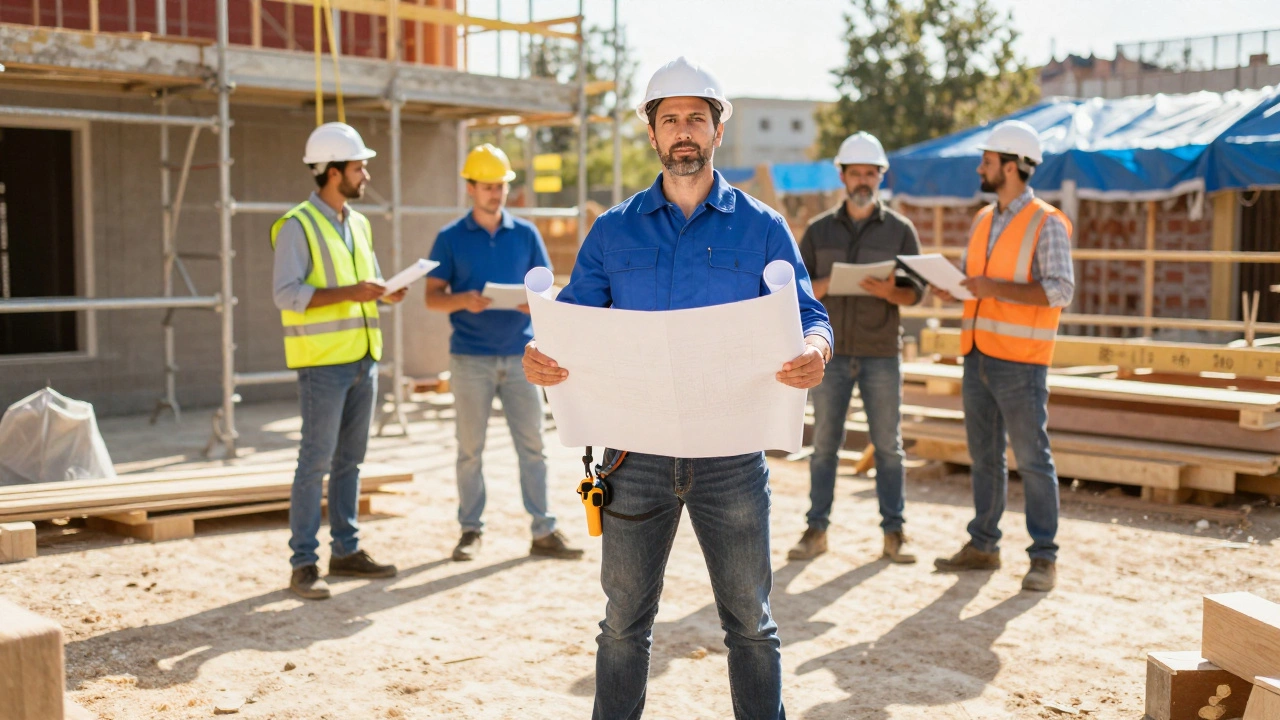A general contractor manages every aspect of a construction or renovation project-from permits and subcontractors to budgets and safety. They save you time, stress, and money by handling the chaos so you don't have to.
Building Contractor: What You Need to Know Before You Hire
If you’re planning a renovation, an extension, or a brand‑new build, the right building contractor can make or break the project. You want quality work, clear pricing, and a team that respects your timeline. Below you’ll get straight‑to‑the‑point advice on picking a contractor, spotting hidden costs, and keeping the build on track.
What to Look for in a Building Contractor
First, check credentials. A reputable contractor should have a valid UK construction licence, insurance, and references from recent jobs. Ask for a portfolio that shows projects similar to yours—whether it’s a loft conversion, kitchen fitting, or a full‑house build.
Second, communication matters. A good contractor explains each step, answers your questions promptly, and provides a written schedule. If they’re vague about timelines or costs, walk away.
Third, compare quotes. The cheapest offer isn’t always the best. Look for a breakdown that lists labour, materials, permits, and any contingency. This helps you spot hidden fees like extra site cleanup or unexpected foundation work.
Finally, consider experience with specific issues. For example, if your plot has a tricky soil type, you’ll need a contractor familiar with foundation repair and settlement periods. Articles on building settlement time and major foundation repair explain why this expertise matters.
Managing Costs and Timelines
Understanding the cost drivers saves you from nasty surprises. Materials such as stone, brick, or modern composites each have different price points and durability. The "Longest Lasting Materials for House Construction" post breaks down which options stand the test of time, so you can weigh upfront cost against long‑term value.
Building permits and regulations, like Type D construction standards, add to the budget. Make sure your contractor includes these compliance costs in the quote. Skipping them can halt the project and lead to fines.
Timing is another key factor. A new build typically settles for several months after completion; knowing the "Building Settling Time" helps you plan move‑in dates and avoid rushed inspections. If you’re adding a loft, the "Average Loft Conversion Cost" guide gives a realistic price range and highlights factors that can push the budget up, such as structural reinforcements.
Keep a contingency fund of about 10‑15% of the total budget. Unexpected issues—like a broken pipe under the foundation—can pop up, and you’ll be glad you’re prepared. The "Homeowners Insurance and Broken Pipes" article explains what coverage you might need, but having cash on hand ensures the work continues without delay.
Regular site visits keep the project on schedule. Ask your contractor for weekly progress updates and request photos. If something looks off, address it early; fixing errors later costs more time and money.
When the work is done, don’t forget the handover checklist. Verify that all finishes match the contract, that warranties are documented, and that you receive any maintenance guides for new materials.
Choosing the right building contractor isn’t rocket science, but it does require a bit of homework. Look for proper licences, clear communication, detailed quotes, and experience with the specific challenges of your project. Keep an eye on material choices, permits, and a realistic timeline, and you’ll end up with a building that lasts and a process that feels smooth.
Building contractors play a crucial role in the construction industry, overseeing the daily operations and managing the entire building process. They ensure projects meet quality standards, budgets, and deadlines. Whether it's a small renovation or a massive commercial development, contractors bridge the gap between architects, clients, and construction crews. This article delves into their responsibilities, qualifications, and the skills they bring to the table.

